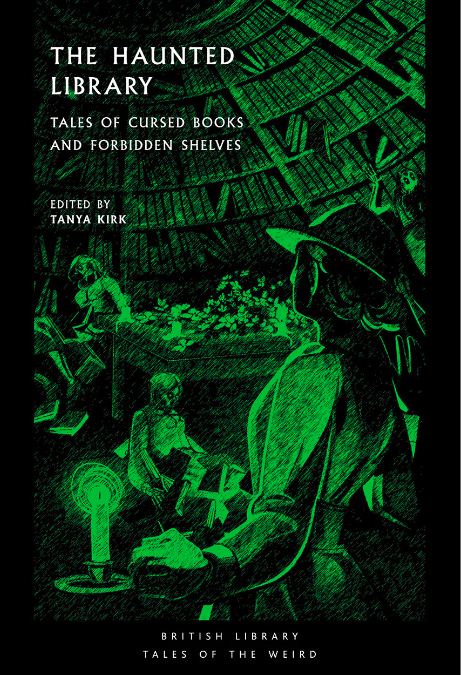25 SUNDAY Twenty-second after Pentecost, The Patronage of the BVM, greater double. Second prayers and Last Gospel of the Sunday. Third prayers of Sts Crysanthus and Daria, Martyrs. Preface of the BVM. White. Second Vespers of the feast, commemorations of the Sunday and of St Evaristus. Plenary Indulgence. [In Diocese of Beverley, Patron of the Diocese, double of the First Class, with an octave, commemoration of which, Creed, and Preface of the BVM during the Octave. Commemoration of the Sunday only.]
26 Monday. The Purity of the BVM, greater double (transferred from 18 October). Second prayers of St Evaristus, Pope Martyr. Creed. Preface of the BVM. White.
27 Tuesday. Vigil of Sts Simon and Jude. The Translation of St John of Beverley, Bishop Confessor, double (transferred from 25 October. Commemoration and Last Gospel of the Vigil. White. [In Diocese of Beverley greater double.]
28 Wednesday. (Feast of Devotion) Sts SIMON and JUDE, Apostles, double of the second class. Creed. Preface of the Apostles. Red. [In Diocese of St David's and Newport Second Prayers for the Bishop.]
29 Thursday. Venerable Bede, Confessor, greater double. White. Plenary Indulgence.
30 Friday. St Francis Borgia, Confessor, semidouble (transferred from 11 October). Second prayers A Cunctis. Third prayers at the choice of the priest. White. Abstinence. [In Diocese of Beverley, of the Octave, semidouble. Second prayers Deus qui corda. Third prayers for the Church or the Pope. White. In Diocese of St David's and Newport Sts Cosmas and Damian, Martyrs, semidouble (transferred from 27 September). Second prayers A Cunctis. Third prayers at the choice of the priest. Red.]
31 Saturday. Vigil. All-Hallows Eve. Second Prayers for the Dead. Third prayers Deus qui corda. Violet. FAST. [In Diocese of Beverley, of the Octave, semidouble. Second prayers and Last Gospel of the Vigil. Third prayers Deus qui corda. White. In Diocese of St David's and Newport, St Francis Borgia, Confessor, semidouble (transferred from 11 October). Second prayers and Last Gospel of the Vigil. Third prayers Deus qui corda. White.]
The Patronage of Our Lady celebrates all those defeats of Saracens, pagans and heretics achieved by Catholic forces under Her Patronage, from Covadonga through to Belgrade. Like the feast of Our Lady Of Victories it was originally instituted for Spain. By 1863 the focus of the latter feast was on the Rosary, while today's feast focuses on the victories which an appeal for Our Lady's protection and guidance can achieve.
As we approach the end of the Church's year, and the end of this series showing what the pre-Pius X Calendar looked like, it is worth reflecting on how sophisticated the pre-1910 calendar was, how flexibly it could cope with the needs of the Sanctoral as well as the Dominical, and how important the local Church was, its particular celebrations taking precedence over all but the major feasts of the Universal Church. Yet in the same way as the Sundays of Epiphany which are missed if Septuagesima comes early fill in for the Sundays after Pentecost which have no propers, so the Calendar copes with local feasts displacing universal feasts, fitting them back in even a couple of months late.
And I have been particularly struck by the importance to the Diocese of its Principal Patron. Apart from having to explain the concept of there being more than two (or three for 1962ists) Octaves, imagine trying to point out the punctiliousness that means that while the whole Diocese celebrates the Patronal Feast and commemorates it for a week, only the Cathedral Church and those parishes which fall within the city in which the Cathedral is situated celebrate the Octave Day similarly. We talk about lex orandi lex credendi, forgetting that the lex orandi is a lot more than the Order of Mass.
More on all of this as I conclude my weekly offerings.
I write this while away from the Muniment Room and its bookcases, unsorted manuscripts, unindexed documents and cabinets of curiosities, so I cannot explain why the feast of St Bede should merit a Plenary Indulgence, or rather, why St Bede's should merit one while other saints whose feasts might rightly be thought to be equally significant to life in England and Wales, don't.
The parish of St Mary of the Angels in Bayswater is served by the Oblates of St Charles Borromeo. The Right Reverend Henry Edward Manning DD, Pronotary-Apostolic and Provost of Westminster is Superior. The Community comprises the Rev Frs Herbert Vaughan DD, Thomas Dillon, Thomas Macdonnell, Henry O'Callaghan, Robert Butler DD, William H Manning, Walter John Bruce Richards, Charles Denny, Henry Bayley and David C Nicols. Masses on Sunday are at 7.00, 8.00 and 9.00, with High Mass at 11.00. Vespers and Benediction at 3.30. Sermon and Benediction at 7.00pm. Mass on weekdays at 7.00, 8.00 and 9.00. The Way of the Cross is on Thursdays at 7.30pm. At 8.00pm on Wednesdays there is a Sermon and Benediction for the Confraternity of the Immaculate Heart of Mary. The intentions of members are read out after the Sermon. On Fridays the same for the Confraternity of the Sacred Heart. On all feasts of the BVM, the Apostles, and on Feasts of Devotion Benediction. The Third Order of St Francis is established in this church and all Franciscan indulgences can be obtained in it. It possesses also all of the indulgences associated with the Holy Basilica of St John Lateran, to which it is affiliated; and the side altars have the Indulgences of the Seven Churches of Rome. The parish serves the hospital of St Mary's Paddington and the Paddington Workhouse.
Two future (and great) Cardinals in one community!
I can't find an online hymn for the Patronage of Mary so here's a hymn to Our Lady of Walsingham, though sung, unfortunately, as a dirge.















































No comments:
Post a Comment